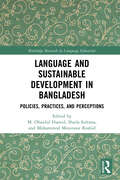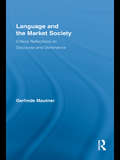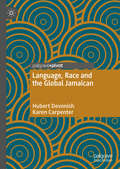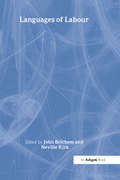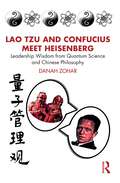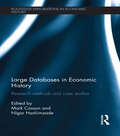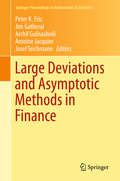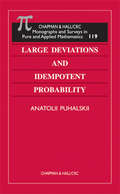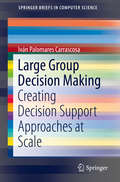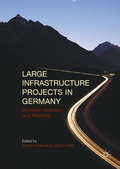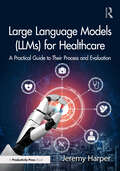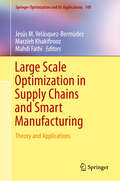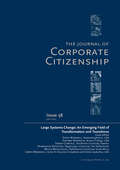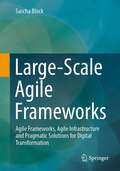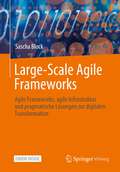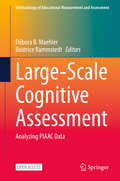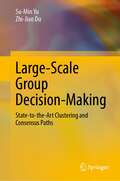- Table View
- List View
Language and Sustainable Development in Bangladesh: Policies, Practices, and Perceptions (Routledge Research in Language Education)
by Shaila Sultana Mohammod Moninoor Roshid M. Obaidul HamidThis book examines relationships between language and sustainable development in the context of Bangladesh. Following inclusive and multidisciplinary perspectives, these relationships are explored in mainstream education, teacher education, religious education and indigenous, ethnic minority and refugee settings. The contexts of development are also diverse which include the public sector, international non-government organisations, domestic work, tourism, and the environment.The book records voices of people from various linguistic, social, cultural, and demographic backgrounds, in urban, rural, and peripheral settings. It makes the language question visible in the manifold contexts of development where it has generally remained invisible. Giving visibility to language by referring to the Sustainable Development Goals (SDGs), the chapters embrace language and development in pluralistic ways and underscore their complex but undeniable relationships. The authors come from diverse backgrounds and bring plurality of genres, methods, insights, and implications.The volume is intended for students, academics, researchers, policy personnel, language practitioners, and other readers whose works and interests straddle language, development, and SDGs. It will benefit them by explicating language-sustainable development relationships in theoretical as well as practical ways, suggesting directives for policies and practices for linguistic and social justice, and equity and inclusion.
Language and the Market Society: Critical Reflections on Discourse and Dominance (Routledge Critical Studies In Discourse Ser. #2)
by Gerlinde MautnerIn education, politics and religion, there are strong indications that discourse is becoming marketized. Around the world, government ministries have re-defined themselves as "service providers," universities draw up "market-driven" curricula, job seekers are asked to "package themselves" more effectively, and there are advertising agencies specializing in "the Christian marketplace." And it is not only word choice that is effected; higher-level linguistic patterns, such as genres and discursive practices (such as the text and talk connected with performance measurement and public relations), are also drawn into the orbit of market forces. Through an intricate dialectic, such patterns of linguistic choices, in turn, reinforce the social structures that shape them, further consolidating the marketization process. In a related development, language within the business domain itself is increasingly shaped by strategic planning and control, for example in branding, message design, and the promulgation of management buzzwords. Marketization thus emerges as a globally unfolding process in which language holds a key position as both cause and effect, and as both subject and object. The book examines these phenomena from a linguistic and critical perspective, drawing on critical discourse analysis, sociological treatises of market society, and critical management studies.
Language, Race and the Global Jamaican
by Karen Carpenter Hubert DevonishThis book examines the racial and socio-linguistic dynamics of Jamaica, a majority black nation where the dominant ideology continues to look to white countries as models, yet which continues to defy the odds. The authors trace the history of how a nation of less than three million people has come to be at the centre of cultural, racial and linguistic influence globally; producing a culture than has transformed the way that the world listens to music, and a dialect that has formed the lingua franca for a generation of young people. The book will be of particular interest to students and scholars of Caribbean linguistics, Africana studies, diaspora studies, sociology of language and sociolinguistics more broadly.
Language, Translation and Management Knowledge: A Research Overview (State of the Art in Business Research)
by Susanne TietzeThe book provides insights, description, and analysis over the knowledge production process within business, organization, and management research. Importantly, it does so from a language and translation perspective. It critically engages with the role of English in this process, provides theoretical argument for the need to include multilingualism in research. Translation is investigated as a concept for future inquiry. The book is expressive and formative of language-based research that is gaining momentum in business, management, and organization research. It offers conceptual innovation through a thorough treatment of multilingualism and translation as having potentiality to guide future empirical and theoretical research, and to dispel hidden hegemonic knowledge production practices. The readers will gain insights into the current status quo of language-based inquiry, discussions of multilingualism for research design and be informed about the philosophical underpinnings of language-based research. Specifically, the benefits are: review and summary of key publications in this field; discussion and analysis of hidden assumptions of knowledge production; a critical take on knowledge production; an outline and discussion of implications of multilingual research for research design and methods; discussion of philosophical underpinnings and a vision for future research. The book is an invaluable source for all research students whose projects contain elements of multilingual research, whether empirical or theoretical. Likewise, the growing body of researchers who take a language-sensitive approach to their research may read it as a source that both ‘pulls together’ the current knowledge status quo while offering discussions of future trajectories. The book is also extremely useful for the teaching of research methods in undergraduate, postgraduate or also Master or doctoral programmes, in particular as many students are not English native speakers and directly confronted with the subject matter of the book.
Language-Sensitive Teaching and Learning: A Resource Book for Teachers and Teacher Educators
by Richard Rossner Rod BolithoThis textbook aims to raise teachers’ language awareness, to emphasise the importance of language and communication in enabling young people to reach their potential, and to develop their knowledge of how language and communication function in educational environments as well as outside. Laid out in a clear five-unit structure, and complemented by a range of classroom activities, reflective exercises, and case study examples from around the world, this book addresses the need for teachers to become more linguistically aware and sensitive in an accessible and reader-friendly way. It is an essential resource for pre-service and in-service teachers working with a range of age groups across the curriculum.
Languages of Labour
by Neville Kirk John BelchemThis volume offers a multidisciplinary approach to the study of language in relation to the subject of history. The British and American contributors put forward the idea that language is a broadly based means of communication with contested and consensual meanings, and that such meanings must be revealed and evaluated by precise historical contextualisation of language and proper attention to established rules of historical method. The essays contend that the connections between the linguistic and the social must be rethought. The book aims to move beyond the unproductive fragmentation and relativism, the narrow textual range and the literal and anti-realist readings of the postmodern ’linguistic turn’ to offer a rigorous approach to the study of language and the subject of history.
Lao People's Democratic Republic: Selected Issues and Statistical Appendix
by International Monetary FundA report from the International Monetary Fund.
Lao Tzu and Confucius Meet Heisenberg: Leadership Wisdom from Quantum Science and Chinese Philosophy
by Danah ZoharThis highly original book offers a new philosophy and vision of higher purpose for leaders facing the immense challenges of the 21st century. By exploring Western quantum physics and traditional Chinese thought, leading management thinker Danah Zohar develops an emergent, new East/West vision that leads not just to global co-operation but to an exciting and revolutionary global-co-creativity.Taking complex ideas and presenting these in a highly engaging and readable way, this book offers the most recent thinking of Danah Zohar's quantum management theory. It demonstrates how the roots of this new philosophy and sense of higher purpose are both ancient and modern, drawn from traditional Chinese thought that had its beginnings thousands of years ago and from quantum physics, first discovered at the beginning of the 20th century. The new generation of quantum management is characterised by being more holistic, dynamic, and humanistic. Written in a very accessible way, Danah vividly demonstrates the advanced nature and scalability of quantum management by using real-world examples.This book provides a foundation for a new leadership vision and style, based on moral renewal, greater cross-cultural understanding, and global harmony, and is truly thought-provoking for business leaders and management researchers.
Lapdesk Company: A South African FOPSE
by Daniel J. IsenbergShane Immelman, founding CEO of Lapdesk (South Africa), is facing several acute problems: a conflict between his director of marketing and his director of field operations; a dramatic increase in prices by a key supplier; and a major strategic alliance that does not seem to be moving forward. Lapdesk is a for profit social enterprise (FOPSE) dedicated to eradicating the shortage of classroom desks in public schools. What should Immelman do? Will Lapdesk achieve its mission?
Lapdesk Company: A South African FOPSE
by Daniel J. IsenbergShane Immelman, founding CEO of Lapdesk (South Africa), is facing several acute problems: a conflict between his director of marketing and his director of field operations; a dramatic increase in prices by a key supplier; and a major strategic alliance that does not seem to be moving forward. Lapdesk is a for profit social enterprise (FOPSE) dedicated to eradicating the shortage of classroom desks in public schools. What should Immelman do? Will Lapdesk achieve its mission?
Larceny Games
by Brian TuohyMajor League Baseball claims it hasn't had a game fixed by gamblers since 1919. No points have been shaved in the NBA since 1954. And the NFL states no game of theirs has come under outside influence - ever. These, however, are lies. The proof resides in FBI files only recently uncovered and discussed in Larceny Games.
Large Dams in Asia
by Marcus NüsserThis book explores the multi-dimensional asymmetries of scale, time, and directions in the large dam controversy with a regional focus on Asia, especially on India and China. Whereas the concept of large-scale transformation of fluvial environments into technological hydroscapes originated in the West, widespread construction of large dams started in the countries of the Global South in the period after decolonisation. Construction and operation of large dams are amongst the most prestigious but also most sensitive development issues, often accompanied by massive resistance of adversely affected people and civil society organisations. Based on the notion of a contested politicised environment, various case studies are analysed to identify the dominant narratives and imaginations that shape the large dams debate. This volume largely contains contributions related to several subprojects from within the Cluster of Excellence 'Asia and Europe in a Global Context: Shifting Asymmetries in Cultural Flows', based at Heidelberg University, with several expert contributions from external researchers.
Large Databases in Economic History: Research Methods and Case Studies (Routledge Explorations in Economic History #67)
by Mark Casson Nigar Hashimzade‘Big data’ is now readily available to economic historians, thanks to the digitisation of primary sources, collaborative research linking different data sets, and the publication of databases on the internet. Key economic indicators, such as the consumer price index, can be tracked over long periods, and qualitative information, such as land use, can be converted to a quantitative form. In order to fully exploit these innovations it is necessary to use sophisticated statistical techniques to reveal the patterns hidden in datasets, and this book shows how this can be done. A distinguished group of economic historians have teamed up with younger researchers to pilot the application of new techniques to ‘big data’. Topics addressed in this volume include prices and the standard of living, money supply, credit markets, land values and land use, transport, technological innovation, and business networks. The research spans the medieval, early modern and modern periods. Research methods include simultaneous equation systems, stochastic trends and discrete choice modelling. This book is essential reading for doctoral and post-doctoral researchers in business, economic and social history. The case studies will also appeal to historical geographers and applied econometricians.
Large Deviations and Asymptotic Methods in Finance
by Jim Gatheral Peter K. Friz Archil Gulisashvili Antoine Jacquier Josef TeichmannTopics covered in this volume (large deviations, differential geometry, asymptotic expansions, central limit theorems) give a full picture of the current advances in the application of asymptotic methods in mathematical finance, and thereby provide rigorous solutions to important mathematical and financial issues, such as implied volatility asymptotics, local volatility extrapolation, systemic risk and volatility estimation. This volume gathers together ground-breaking results in this field by some of its leading experts. Over the past decade, asymptotic methods have played an increasingly important role in the study of the behaviour of (financial) models. These methods provide a useful alternative to numerical methods in settings where the latter may lose accuracy (in extremes such as small and large strikes, and small maturities), and lead to a clearer understanding of the behaviour of models, and of the influence of parameters on this behaviour. Graduate students, researchers and practitioners will find this book very useful, and the diversity of topics will appeal to people from mathematical finance, probability theory and differential geometry.
Large Deviations and Idempotent Probability
by Anatolii PuhalskiiIn the view of many probabilists, author Anatolii Puhalskii's research results stand among the most significant achievements in the modern theory of large deviations. In fact, his work marked a turning point in the depth of our understanding of the connections between the large deviation principle (LDP) and well-known methods for establishing weak
Large Group Decision Making: Creating Decision Support Approaches at Scale (SpringerBriefs in Computer Science)
by Iván Palomares CarrascosaThis SpringerBrief provides a pioneering, central point of reference for the interested reader in Large Group Decision Making trends such as consensus support, fusion and weighting of relevant decision information, subgroup clustering, behavior management, and implementation of decision support systems, among others. Based on the challenges and difficulties found in classical approaches to handle large decision groups, the principles, families of techniques, and newly related disciplines to Large-Group Decision Making (such as Data Science, Artificial Intelligence, Social Network Analysis, Opinion Dynamics, Behavioral and Cognitive Sciences), are discussed. Real-world applications and future directions of research on this novel topic are likewise highlighted.
Large Infrastructure Projects in Germany
by Genia Kostka Jobst FiedlerThis book presents an analysis of why some large infrastructure projects are delayed or compromised and offers important insights into the better delivery of future projects. It provides an important reaction to the ambitious e315 billion investment plan devised by the European Commission, wherein Europe's infrastructure is a key investment target. Germany is adopted as a focus, as Europe's largest economy, and a nation that has seen significant delays and tensions in the delivery of key infrastructure projects. The contributions to this volume demonstrate various patterns for infrastructure assets and illustrate how factors such as poor project governance, early planning mistakes, inappropriate risk management and unforeseen technological challenges influence delivery. The in-depth case studies on the Berlin Brandenburg Airport, the Hamburg Elbphilharmonie, and offshore wind parks show how project delivery can face massive problems, and illuminating solutions are offered to these problems. Overall, the case of Germany also offers the opportunity to assess various new forms of project delivery, such as public-private partnerships (PPP), and the risks and opportunities of ambitious first-mover 'pioneer' projects. The book will be of great interest for scholars and upper-level students of human geography, business and management, as well as policy makers.
Large Language Models (LLMs) for Healthcare: A Practical Guide to Their Process and Evaluation
by Jeremy HarperIn today’s rapidly evolving healthcare environment, one technology stands at the forefront of innovation: large language models (LLMs). Far more than a fleeting hype, LLMs represent a foundational shift in how healthcare professionals interact with and derive value from data. From simplifying clinical note-writing to supporting patient engagement and enhancing administrative processes, LLMs have the power to transform nearly every corner of the healthcare ecosystem. In Large Language Models (LLMs) for Healthcare, Jeremy Harper shines a spotlight on this transformative potential. With clarity and practicality, he explores how these advanced artificial intelligence (AI) tools can reshape clinical workflows, optimize administrative tasks, and ultimately create a more responsive, patient-centered model of care. Over the course of this book, you will discover new opportunities—learn how LLMs can reduce manual documentation burdens, provide intelligent summaries of complex patient histories, and offer real-time translations of clinical jargon; understand the fundamentals—grasp what LLMs are, how they work, and why they can handle vast amounts of clinical text more effectively than previous AI tools; examine key use cases—from automated billing support and smart note generation to patient triage and ethical telehealth consultations; address risks and realities—gain insight into challenges such as "hallucinations," inherent bias, and the critical importance of patient privacy; plan for implementation—explore strategies for prompt engineering, fine-tuning, and rigorous evaluation of LLM solutions; and envision the future – glimpse how LLMs might revolutionize healthcare through enhanced back-office operations and cutting-edge clinical decision support.
Large Scale Optimization in Supply Chains and Smart Manufacturing: Theory and Applications (Springer Optimization and Its Applications #149)
by Jesús M. Velásquez-Bermúdez Marzieh Khakifirooz Mahdi FathiIn this book, theory of large scale optimization is introduced with case studies of real-world problems and applications of structured mathematical modeling. The large scale optimization methods are represented by various theories such as Benders’ decomposition, logic-based Benders’ decomposition, Lagrangian relaxation, Dantzig –Wolfe decomposition, multi-tree decomposition, Van Roy’ cross decomposition and parallel decomposition for mathematical programs such as mixed integer nonlinear programming and stochastic programming. Case studies of large scale optimization in supply chain management, smart manufacturing, and Industry 4.0 are investigated with efficient implementation for real-time solutions. The features of case studies cover a wide range of fields including the Internet of things, advanced transportation systems, energy management, supply chain networks, service systems, operations management, risk management, and financial and sales management. Instructors, graduate students, researchers, and practitioners, would benefit from this book finding the applicability of large scale optimization in asynchronous parallel optimization, real-time distributed network, and optimizing the knowledge-based expert system for convex and non-convex problems.
Large Systems Change: A Special Theme Issue of The Journal of Corporate Citizenship (Issue 58)
Large Systems Change (LSC) is a field of study and action that is characterized by its focus on transformational pathways towards a participative, flourishing future through inter- and trans-disciplinary approaches that value engagement with practitioners and those aspiring for such futures. Its emergence holds great promise for addressing critical issues. Advancing its development requires aggressiveness to cross the many disciplinary, institutional and other boundaries and build the necessary scale of effort; however, humbleness is also required to recognize that although we have substantial knowledge and methodologies for approaching LSC, we are still at early stages of their development. The papers in this Special Issue of The Journal of Corporate Citizenship focus on the question of how to scale to the field of LSC. We can see the contributors and editors reflect on this at the three levels: broadening by increasing the numbers of people and organizations identified with it; going up and out with a more receptive environment arising with failures of traditional management approaches; and deepening of knowledge and methods for supporting LSC. This Special Issue will be essential reading for those researching in this emerging field, and practitioners looking for the latest thinking on how LSC may be a solution to global challenges.
Large-Scale Agile Frameworks: Agile Frameworks, Agile Infrastructure and Pragmatic Solutions for Digital Transformation
by Sascha BlockThe book Large-Scale Agile Frameworks provides practical solutions for cross-team and cross-functional prioritization of requirements and documentation for enterprises. It reflects the interplay of current technology trends such as cloud computing and organizational requirements for microservices. Organizations are increasingly required to align their IT strategy with customer needs for customer-centric and service-oriented products and services. The book analyzes the unique requirements of a differentiated software service offering and shows how agile principles are effective in addressing these issues. The book also highlights the importance of large-scale agile development and provides guidance to organizations on how to transform their structure towards agile prioritization. The book covers various appropriate models, methodologies, and agile tools and provides recommendations for cross-functional prioritization of requirements. It also considers the need for IT security and shows how it can be integrated into the overall agile development process.
Large-Scale Agile Frameworks: Agile Frameworks, agile Infrastruktur und pragmatische Lösungen zur digitalen Transformation
by Sascha BlockWarum sollten Sie sich mit Large-Scale Agile Frameworks auseinandersetzen? Agilität in Unternehmen und Organisationen gewinnt zunehmend an Bedeutung. Dieses Buch unterstützt Sie mit praxisnahen Lösungen und Werkzeugen zur übergreifenden Priorisierung von Anforderungen zur Software-Entwicklung. So ermöglichen Sie bestmögliche digitale Lösungen und etablieren einen optimalen Informationsfluss in Ihrer Organisation.Mit agilen Organisationsstrukturen - auch als Large-Scale Agile Frameworks bekannt - werden Unternehmen und Organisationen anpassungsfähiger. Damit können sie schneller auf Veränderungen reagieren und werden wettbewerbsfähiger. Unterstützen Sie somit die bestmögliche Priorisierung der in agilen Teams organisierten Unternehmenseinheiten. Wissenschaftsorientiert werden Large-Scale Agile Frameworks im Kontext des Large-Scale Agile Development und dazugehöriger Agile Frameworks und agiler Methodik und Tools beleuchtet. Mit dem Domänenmodell (Domain Driven Design), dem Scaled Agile Framework (SAFe) und dem Spotify Engineering Model werden drei bekannte Frameworks vorgestellt. Dabei wird das Zusammenspiel aktueller Technologie-Themen wie des Cloud-Trends oder die organisatorischen Anforderungen im Hinblick auf Microservices und IT-Security reflektiert.
Large-Scale Cognitive Assessment: Analyzing PIAAC Data (Methodology of Educational Measurement and Assessment)
by Débora B. Maehler Beatrice RammstedtThis open access methodological book summarises existing analysing techniques using data from PIAAC, a study initiated by the OECD that assesses key cognitive and occupational skills of the adult population in more than 40 countries. The approximately 65 PIAAC datasets that has been published worldwide to date has been widely received and used by an interdisciplinary research community. Due to the complex structure of the data, analyses with PIAAC datasets are very challenging. To ensure the quality and significance of these data analyses, it is necessary to instruct users in the correct handling of the data. This methodological book provides a standardised approach to successfully implementing these data analyses. It contains examples of and tools for the analysis of the PIAAC data using different statistical approaches and software, and it offers perspectives from various disciplines. The contributing authors have hands-on experience of using PIAAC data, and/or they have conducted data analysis workshops with these data.
Large-Scale Development of Renewables in the ASEAN: Economics, Technology and Policy (Economics, Law, and Institutions in Asia Pacific)
by Farhad Taghizadeh-Hesary Fukunari Kimura Han Phoumin Rabindra NepalThis book combines the fundamentals of economics, technology, and policy in deriving feasible solutions to facilitate the large-scale development of renewables in the ASEAN. A unique feature of this book is documenting that achieving large-scale renewables deployment inevitably requires combining these three distinct but interrelated forces of economics, technology, and policy. The economic foundations are guided by the microeconomic foundations grounded on economic efficiency and the associated market designs to deliver short-run economic efficiency including the application of auction designs and cost-benefit analysis. The role of battery technology and utility-scale batteries as enabling technologies for large-scale deployment of renewable energy is evidenced through energy modeling techniques. This book also pays particular emphasis on identifying key policy barriers of large-scale renewable development and pathways to overcome them such as the importance of carbon pricing in ASEAN countries and cross-border electricity trade to improve energy security by achieving clean energy targets. Country-specific case studies and regional case studies are used to study the economic, technological, and policy facets of large-scale renewable development with a view to derive policy lessons and recommendations in decarbonizing economic regions such as the ASEAN. The case studies are carefully selected and supported by rigorous data analysis and modeling as appropriate. This book on energy economics and policy is highly recommended to readers who seek an in-depth and robust overview on the recent empirical evidences of facilitating the large-scale development of renewables with a particular reference to the ASEAN and Asian economies including India and China.
Large-Scale Group Decision-Making: State-to-the-Art Clustering and Consensus Paths
by Su-Min Yu Zhi-Jiao DuThis book explores clustering operations in the context of social networks and consensus-reaching paths that take into account non-cooperative behaviors. This book focuses on the two key issues in large-scale group decision-making: clustering and consensus building. Clustering aims to reduce the dimension of a large group. Consensus reaching requires that the divergent individual opinions of the decision makers converge to the group opinion. This book emphasizes the similarity of opinions and social relationships as important measurement attributes of clustering, which makes it different from traditional clustering methods with single attribute to divide the original large group without requiring a combination of the above two attributes. The proposed consensus models focus on the treatment of non-cooperative behaviors in the consensus-reaching process and explores the influence of trust loss on the consensus-reaching process.The logic behind is as follows: firstly, a clustering algorithm is adopted to reduce the dimension of decision-makers, and then, based on the clusters’ opinions obtained, a consensus-reaching process is carried out to obtain a decision result acceptable to the majority of decision-makers. Graduates and researchers in the fields of management science, computer science, information management, engineering technology, etc., who are interested in large-scale group decision-making and consensus building are potential audience of this book. It helps readers to have a deeper and more comprehensive understanding of clustering analysis and consensus building in large-scale group decision-making.
